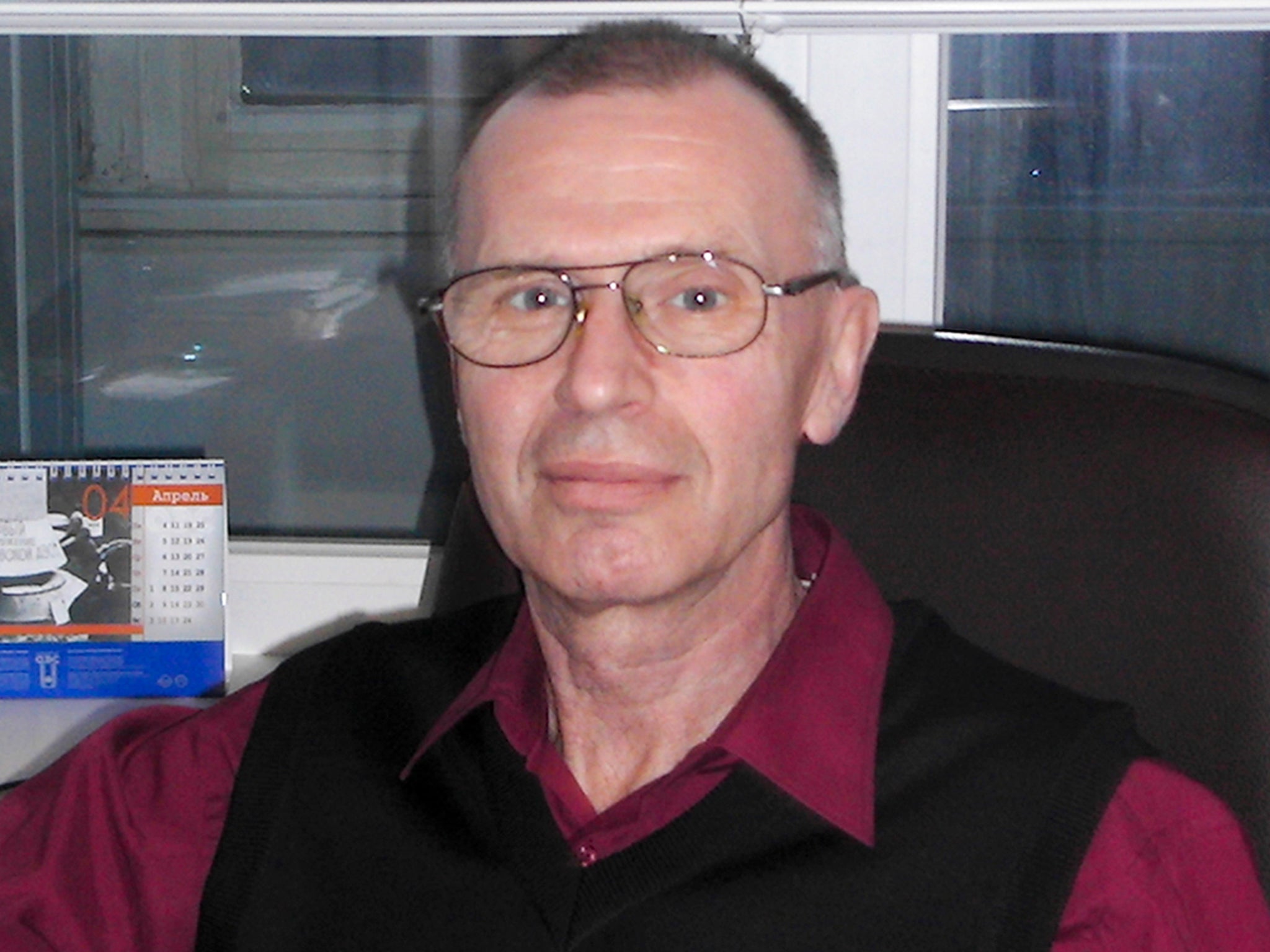'Everyone is afraid': Novichok scientist fears for his safety after claiming his lab developed nerve agent used in Salisbury attack
Vladimir Uglev says Moscow’s denial of culpability over the attempted assassinations of Sergei and Yulia Skripal do not withstand scrutiny
Vladimir Uglev was run over by a car and left with serious injuries days after saying that he may have helped develop the novichok used in the Salisbury attack. But, although bruised and battered, the Russian scientist insists it was just an accident, and is adamant that he will continue to speak out despite fearing that he may be targeted.
Speaking after he returned from hospital treatment, Mr Uglev said Moscow’s denial of culpability over the attempted assassinations of Sergei and Yulia Skripal do not withstand scrutiny. “The Russian explanation does not match other explanations. What [Russian foreign minister Sergei] Lavrov says is simply not true from the scientific point of view.”
Mr Uglev was mown down by a car on a pedestrian crossing near his home in Anapa on the Black Sea a few days after publicly stating: “If you’re asking who made the substances that poisoned the Skripals, his name and his country, it is possible it was made by my hands.” Manufacture had taken place, he claimed, at the government laboratory where he worked at Shikhany, near Saratov.
Describing the accident, 71-year-old Mr Uglev recounted how he was crossing the road when he saw that an approaching car make no attempt to slow down. He had started running, but got hit nevertheless, jumping on to the bonnet to save himself from going under the wheels, suffering wounds to his head when it hit the windscreen in the process.
Mr Uglev showed the bruises left on his head and arm from the crash which, he says, he believes was just an accident. However, asked if he felt that he may be targeted over his disclosures, he responded: “Everyone is afraid, but you have to control your fear. There is a song I keep thinking of: ‘I am free, I forget what fear means; but I always look around for danger’.”
Mr Uglev held there was very little chance of novichok being acquired privately by the Skripals’ attackers. “There isn’t a black market for this; you need professionals and correct lab conditions which are good enough to carry out production. Whoever did this (carried out the attack) was a professional.”
Mr Uglev said he believed that former MI6 agent Mr Skripal and his daughter escaped death because “the dose was not large enough, they may have been wearing thick clothing and they could have washed their hands like every normal person in the course of the day after the initial contact with the substance”.
He recalled the experiments carried out in transporting novichok in the laboratory, speaking in an interview which will be broadcast in full on bTV Bulgaria’s Svetoslav Ivanov’s 120 Minutes programme on Sunday.
The substance, he stated, “could be carried in a small container, a lipstick-tube size, or the size of a tube of glue. Whoever put the substance on the Skripals’ door handle could avoid contamination by wearing gloves, which could be later destroyed, and simply by briefly holding his breath.” Musing over motivation for the attempted murders, he asked: “Why would the Americans want to kill the Skripals, why would England? It is said they could have done, but why the daughter?”

The nerve agent, when not at full strength, need not, held Mr Uglev, be lethal. Everything depended on the dosage as the Skripal case had shown. He himself had survived an accident in the laboratory. “I had dropped some on my right arm, I felt irritation on my right arm for five, six years, but that is all.”
Mr Uglev remains adamant that the novichok used on the Skripals came, almost certainly, from his laboratory. “I can tell by the spectrometry readings, the presence of fluorine, by its molecular weight and all the spectrum data I was sent recently,” he said.
Some others who had fallen foul of the Kremlin wonder whether Mr Uglev will survive if he keeps speaking out. Vil Mirzayanov, a senior scientist who had spent years testing and developing novichok and then revealed its existence to the world, told The Independent: “One can say it’s almost suicidal for Uglev to remain in Russia after saying what he has. It would have been better if he had said these things from outside the country. He needs to be very careful now.”
Mr Mizyanov, who now lives in America, continued: “I have the protection of the United States government which gives me a certain level of safety. But for Uglev to talk about novichok while staying in the country is a very rash thing to do in the current climate.”
Mr Mirzayanov was fired and jailed after making public a new generation of chemical weapons which he said was being secretly produced by Russia. He gave his account to the Russian media in 1991 after being angry and alarmed about what was being hidden by the country’s military, including novichok. The charges were dropped after intervention by the US government and the Soros Foundation, and he was given asylum in America.
“The fact is that what he is saying is contradicting Putin’s line on novichok and the Skripals and that’s what puts him in danger”, said Mr Mirzayanov. “The situation has changed a lot since I was jailed. Relations between the West and Russia are so bad now that the Americans won’t be able to help people like him. This is a very dangerous time for those who offend powerful people.”
Join our commenting forum
Join thought-provoking conversations, follow other Independent readers and see their replies
Comments
Bookmark popover
Removed from bookmarks